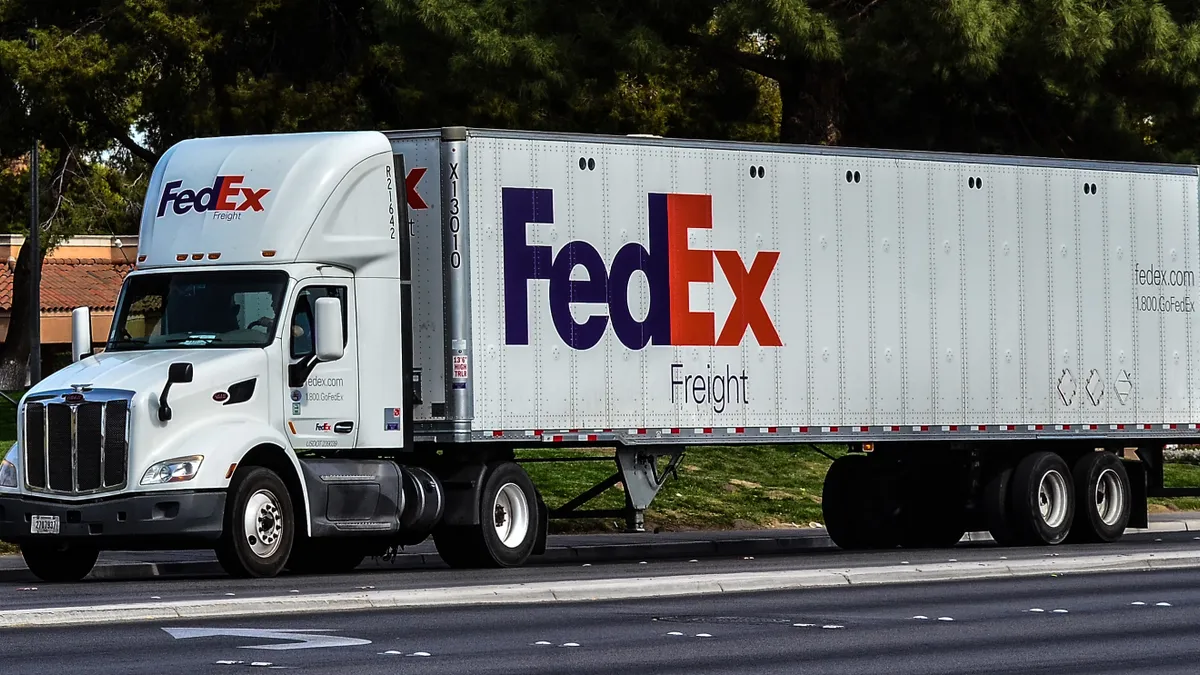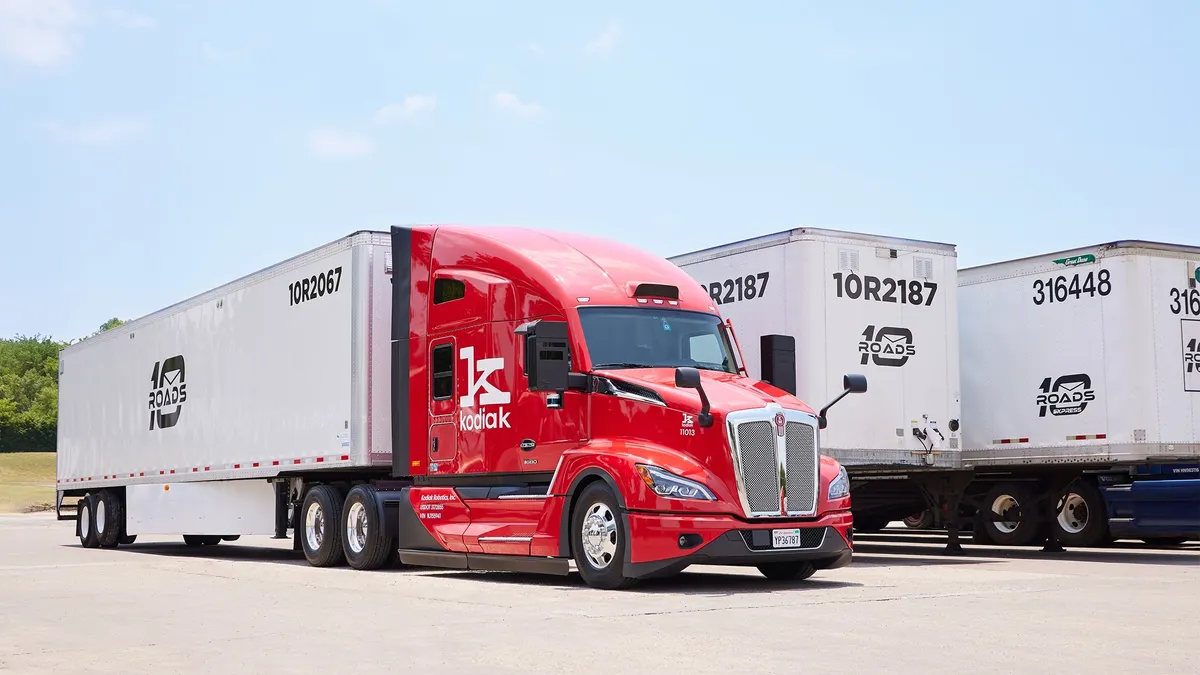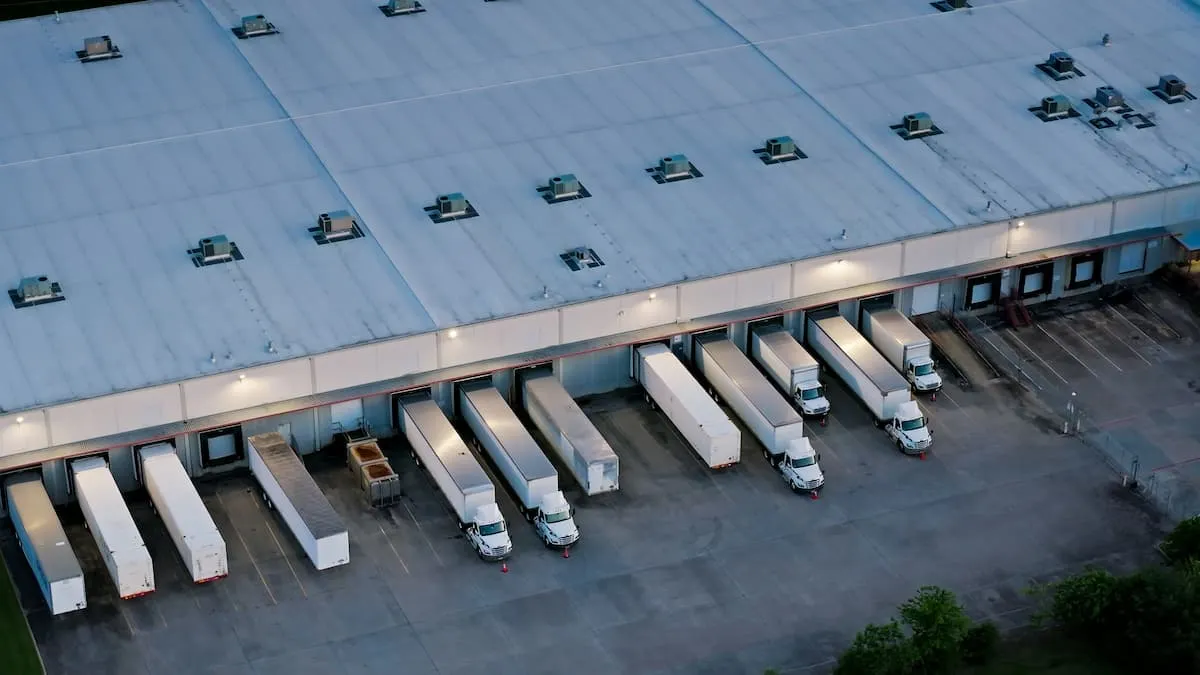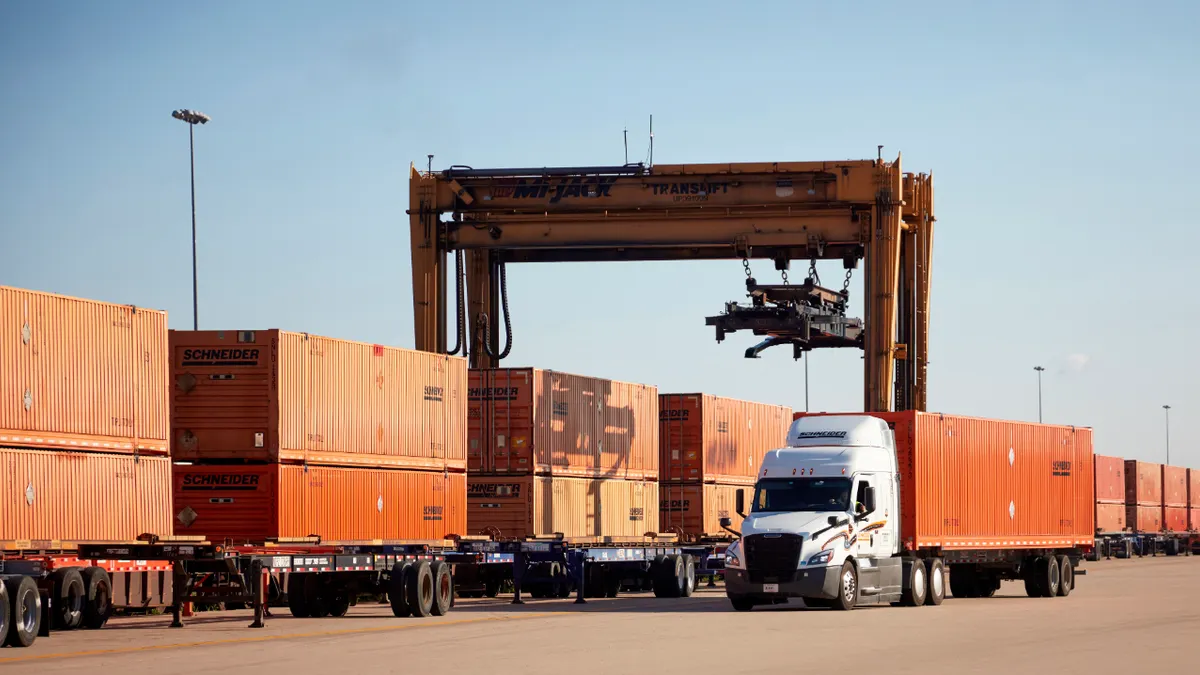There are a few options when it comes to transitioning to a more sustainable power source for vehicles: electricity, hydrogen fuel cells, liquefied natural gas, to name a few. In 2013, UPS began transitioning parts of its Class 8 heavy-duty trucks to renewable natural gas (RNG). Six years later, the company has made the largest purchase of RNG in U.S. history.
The reasons UPS went with RNG to power its fleet involved the fuel becoming more widely available, its ability to seamlessly integrate into an existing natural gas system and its "very good emissions profile," Mike Casteel, UPS director of fleet procurement, said in an interview with Supply Chain Dive.
"Today, we have over 50 natural gas stations and several thousand natural gas trucks operating in the United States," Casteel said. Since 2009, UPS has invested $1 billion in "alternative fuel and advanced technology vehicles and fueling stations globally," according to a press release.
Why RNG is the fuel of choice
RNG's availability is undeniably important. And the numbers have skyrocketed over the last few years as production grew from 33 million gallons of ethanol equivalent in 2014 to 189 million gallons in 2016, according to numbers from the Energy Information Administration (EIA).
RNG is also cheaper than diesel, Casteel said. Most of the natural gas in the U.S. is considered a fossil fuel and is extracted from underground through a process known as fracking. RNG is considered renewable because it is made using the gaseous byproduct of decaying organic material. RNG can take the form of either compressed natural gas (CNG) or liquefied natural gas (LNG) for transportation fuel, according to the Department of Energy.
The Renewable Fuel Standard (RFS) program, created by the EPA in 2005, has been driving these increased production levels, according to Casteel. The RFS program requires renewable fuel refiners or importers to reduce the volume of petroleum-based transportation fuel, heating oil or jet fuel.
UPS is looking into other options for making their vehicles more efficient. It is actively testing hydrogen fuel cells and already has some electric vehicles on the road.
Electric vehicles are "not commercially developed yet to the point where we’re able to deploy those in numbers like we are with natural gas, but we’re working to get it there," Casteel said. "We’re working with groups like Tesla and others on the heavy duty side to see if electrification can happen on the tractor-trailer application."
Hydrogen fuel cells also require more investment, he said. But the transition to RNG has been "seamless" with the ability to use the trucks and pumping infrastructure already in place for traditional natural gas.
UPS now has 6,100 natural gas vehicles around the world that can use RNG fuel. While many of the vehicles using the RNG fuel are Class 8 trucks, some delivery vans run on natural gas, Casteel said.
Will RNG investments pay off?
In deciding how and where to use RNG, UPS has considered variables on a city-by-city basis.
UPS operates on a hub-and-spoke style network with a "hub" facility in a central location where packages are sorted and sent on to other locations. It's at this hub where the fueling infrastructure is set up.
The 3PL started with the fleet profile to see how many trucks there were and how many miles they ran, then it met with the local utility provider to figure out gas availability to see if the investment in RNG would eventually pay off.
"That combination of things has to come together for us to say we can put a station here for almost 24 hours out of the day, and we can put a large number of trucks here that burn this fuel and we can recover the incremental cost of those assets over a reasonable period of time through fuel savings because natural gas costs less than diesel fuel," Casteel said.
"Our environmental goals also need to be economically sustainable, so this is one of those cases where they both come together very well."

Mike Casteel
UPS Director of Fleet Procurement
At this point, UPS has moved RNG into all of its existing locations where it considers it to be an economically sound decision, he said. The use of RNG could still expand with the construction of new facilities or if the price difference between RNG and traditional diesel fuel continues to widen.
"Our environmental goals also need to be economically sustainable, so this is one of those cases where they both come together very well," he said.
UPS' goal is to reach 100 million gallons annually, though this could take "a couple of years," Casteel said. "We’re currently engaged with other potential suppliers to expand the use of RNG," he said.





















